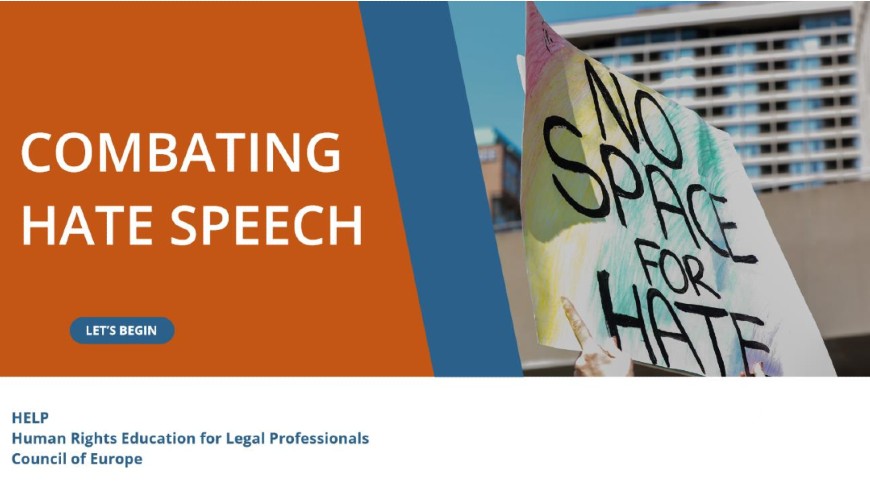From 5 April to 30 May 2024, twelve representatives from Armenia's Ministry of Justice, the Human Rights Defender’s Office, and law enforcement agencies successfully completed an online course on combating hate speech. This course, focused on the European Commission against Racism and Intolerance (ECRI) General Policy Recommendation (GPR) No. 15, was hosted by the Council of Europe’s HELP platform.
The course comprised eight hybrid modules covering key topics such as:
- Defining and identifying hate speech
- Raising public awareness and using counter-speech
- Supporting those targeted by hate speech
- Self-regulation as a means of tackling hate speech
- Media, the internet, and hate speech
- Administrative and civil liability for hate speech
- Sanctions against organizations that use hate speech
- Criminal liability and sanctions for hate speech
In addition to the core materials based on ECRI GPR 15, participants engaged with content tailored to the Armenian context. This included overview of Armenia’s legal and institutional framework on hate speech, relevant reports, publications, and case-law information, ensuring a comprehensive and context-specific understanding of the issue.
This initiative marks a significant step towards enhancing the skills and knowledge of Armenian officials in combating hate speech, fostering a more inclusive and respectful society.
This course was implemented as part of the European Union and Council of Europe joint programme “Partnership for Good Governance”, co-funded by the European Union and the Council of Europe, and implemented by the Council of Europe, in the framework of the project “Promoting equality and non-discrimination in Armenia”.





